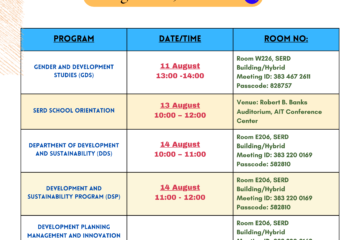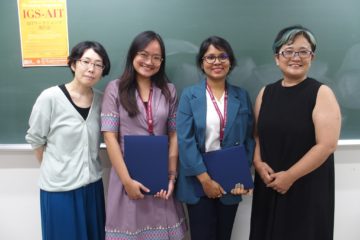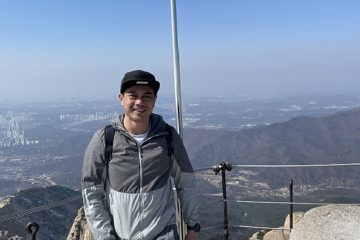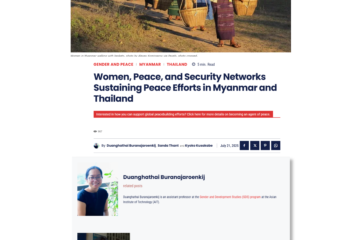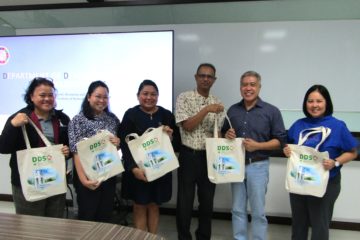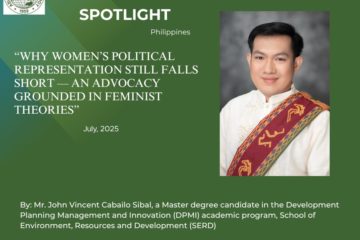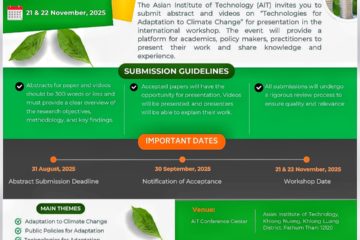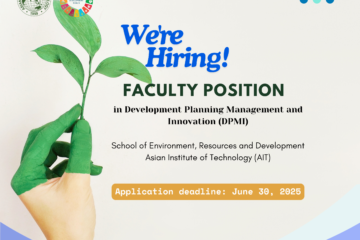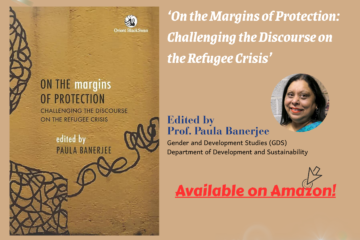Orientation Programs: August 2025 intake
Orientation Programs: August 2025 Intake 𝑫𝒆𝒂𝒓 𝑫𝑫𝑺 𝑺𝒕𝒖𝒅𝒆𝒏𝒕𝒔 (𝑨𝒖𝒈𝒖𝒔𝒕 2025 𝑰𝒏𝒕𝒂𝒌𝒆), A warm welcome to the Department of Development and Sustainability (DDS) at the Asian Institute of Technology (AIT)! We’re thrilled to have you join our vibrant community and look forward to meeting each of you soon. As you begin Read more…
